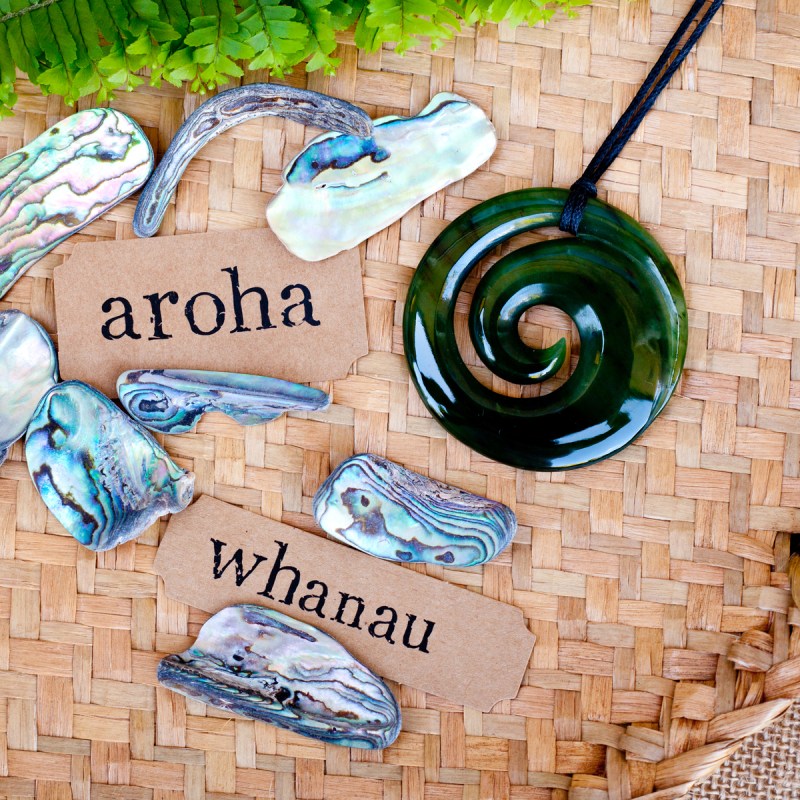
Whenever I travel to a country where English is the main language, I’m always surprised by how different the English dialect can be. New Zealand is no exception and adds in another dimension — with Maori being so important to the culture, you’ll find a blend of English and Maori used colloquially. It’s beautiful to see the blending of cultures in a dialect, but takes some getting used to! Here are 32 words and expressions you should know for your next trip to New Zealand.
Videos by TravelAwaits
And for those planning trips outside of their language barrier, be sure to visit 7 Of The Best Language Apps For Travelers.
Kia Ora
This is perhaps the most important phrase you should learn. It can mean “hello,” “thank you,” and “well done.” Many people will greet you with these beautiful words, possibly even at immigration. Note, if you say this to a Maori person, they may respond kei te pehea koe, which means “how are you?”

Aotearoa
This is possibly the second most important word you need to know. Aotearoa is the Maori word for New Zealand. It means “land of the long white cloud.” You can see the cloud especially well over Mt. Taranaki, and it will stay in your memory forever. It also helps you begin to be curious about Maori stories and legends.
Sweet As
I know you’re asking, “sweet as what?” Stop waiting, that’s the whole expression. It means anything from “awesome” to “thank you,” and you can even interchange “sweet” for other words relevant to your conversation. For example, you could say “easy as” when talking about how easy it is to do something. To the untrained ear, “sweet as” can sound like someone is complimenting your derriere. Nice as I’m sure it is, this expression has nothing to do with anatomy.
Choice
Like a less emphatic version of “sweet as,” choice is used to convey something positive like “cool” or “I agree.” If you want to truly fit in as a Kiwi, this should become a regular word in your vocabulary.
Chur
Also interchangeable with “sweet as,” chur is for saying “thanks.” You may also find people saying ta.
Bring A Plate
If you’re invited to someone’s house for a meal, you might be asked to “bring a plate.” The first time I heard it, I asked if I should also bring cutlery. Almost all foreigners make that mistake, and it cracks up Kiwis. The expression means “bring something to eat,” letting you know it’s a potluck gathering.
My Shout / Your Shout
This one is very important! It refers to who’s paying. If someone tells you it’s “your shout,” that means they expect you to pay for the drinks, meal, or whatever you’re doing. If they say “my shout,” then drinks are on them.
Yeah Nah!
Sounds like it might be positive or an expression of surprise. In fact, this one means “thanks, but no thanks.”

The Dairy
I love cows, so I thought this referred to the closest place I could go see them. Unfortunately, for me, it refers to a convenience store, commonly called a “bodega” in many cultures.
Tramping
Honestly, the first time I got invited to go tramping, I thought I was being asked to accompany my friend to a bar and look for men. Nope! It means “hiking,” and most everyone does it in New Zealand.
Bach
Pronounced “batch,” this refers to a holiday home. Many people have a summer bach, or you can rent a bach on the beach.
Gummies / Wellies
In New Zealand, everyone owns a good pair of rainboots and this is how they refer to them.
She’ll Be Right!
This one means “everything will be ok” and is used for people and animals. If a friend tells you their aunt isn’t feeling well, and you express sympathy, they’re likely to reply, “she’ll be right.”
Bench
I stayed with a new friend during my first week in New Zealand. She told me she had left some food on the bench. First, I thought it was strange that she’d leave food there. Then, I couldn’t find her bench. Finally, I learned she was talking about the table.
Across The Ditch
In New Zealand, this refers to Australia. In Australia, this refers to New Zealand.
Chilly Bin
If you’re going to the beach, don’t leave home without it! This is your cooler that you’ll keep the wine and beer in.

Jandals
You’ll need these for your trip to the beach as well — they’re your flip-flops. You can spot jandal fences around New Zealand with discarded pairs.
Cuppa
You’ll hear this one most days — “would you like a cuppa?” It refers to a cup of tea.
Togs
If someone tells you to bring togs, it means to grab your bathing suit. You’re either going swimming or to a hot spring.

Chook
This is what they call a chicken; the animal, not the person. Kiwis are big into sustainability and many people who have a backyard have chooks to lay fresh eggs.
Jafa
This is an impolite word you’re likely to hear outside Auckland. It’s an acronym that stands for “Just another f-ing Aucklander.” It essentially refers to an assumption that there are snobs in Auckland. However, most people I’ve met here are wonderful! It is used in playful banter, especially between two people who aren’t from Auckland.
As mentioned at the start of this article, you’ll hear a lot of Maori words used in daily language, in addition to kia ora and Aotearoa. In the Maori language, all vowels are pronounced in most words, and it takes some getting used to. For example, Aotearoa is pronounced “ey-o-tey-ah-ro-ah” not “ow-tee-rowa”. Here are some of the most common ones you should learn.
Aroha
Love. Pure and simple, it is a beautiful word.
Pakeha
White people. What I love about this word is that it drives home that Maori are Kiwis. So, it’s incorrect to say, “are you a Kiwi or Maori?” Pakeha and Maori allow you to speak to someone about their ancestry without implying they’re of a different nationality.
Koha
Donation. You may give, or receive, a small amount of money for a service rendered for free. You’ll see koha boxes at free yoga classes, for example, and this is what they’re about.
Kai
Food. I volunteered for a wonderful organization called Bald Angels. They put together kai boxes every Christmas, bringing food to New Zealand’s neediest children.
Kai Moana
Seafood. Kai means food, moana means sea. Together, they refer to “food from the sea.”
Whanau
It is one of the words you’ll hear a lot. My whanau refers to my family. Family can mean blood related, or you can feel like whanau with good friends. Note, any time you see a word that starts with wh it’s pronounced as f. So this word is pronounced, “fan-ow.”

Marae
This is a gathering place for Maori. It is part of a community and a sacred space. Your whanau is meant to gather at a specific marae for their community. If you want to enter a marae, you should ask permission, and you should inform yourself of the proper protocols.
Mana
Mana is a beautiful Maori word referring to your integrity, your soul, and your values. It’s what makes you, you. It can also refer to power, authority, and reputation.
Mahi
Your work. If someone asks, “how’d you get on with your mahi today?” they’re asking how your day at work was.

Hongi
This refers to the Maori greeting custom where people rub noses.
Kapai
Kapai means “well done!” and implies you’ve impressed someone with your efforts.
Final Notes
There are so many beautiful expressions in New Zealand. You’ll no doubt turn your head more than once trying to figure out what someone’s just said to you. The Kiwi accent can further your confusion during a conversation. One of my disappointments is when I hear the word moa. Moa were huge birds hunted to extinction years ago. I really wanted to see one in the wild as they were apparently nice birds. So, with the Kiwi accent, every time someone says, “I need to go see about the moa,” I get excited thinking maybe the bird has come back from extinction! Sadly, for me, they were just talking about their lawnmower.
For more on the land of the white cloud, check out our recent coverage of New Zealand:
